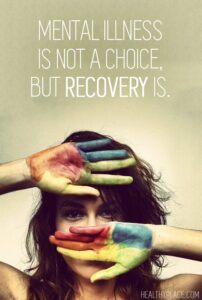 Dear Director,
Dear Director,
We learned in our foster care training that kids who experienced early trauma may develop mental health issues later on in life. And sure enough it is happening to our 12-year-old adopted son, who is struggling at home and school with tantrums and nightmares. We just received the results from his Psychological Evaluation, and he has been labeled with Disruptive Mood Dysregulation Disorder, Post Traumatic Stress Disorder, and Attention Deficit Hyperactivity Disorder. We are shocked, and really don’t know how to understand these labels. We are also afraid they will follow him as he goes through adolescence and may change how other people see him. We love our son and fear for his future with these mental health disorders, help us understand.
Sincerely, Worried Sick
Dear Worried Sick,
You know how we have nicknames for people and cute phrases to describe routines? I am talking about things like giving the dog a “cookie” instead of a biscuit, or taking the kids “up for a story” instead of saying bedtime. It is shorthand to another person who understands that phrase, even though there may be many kinds of cookies and different plans for bedtime, depending on school night or weekend. Labels for mental health disorders are the same thing. They make sense to other mental health professionals, and describe a general group of potential symptoms. The professionals know that not every child with that diagnosis will look and act the same. In fact the book that gives us those labels, The DSM-V is just a list of possible symptoms, with the note like “four of seven in the last two weeks’ or “five of eight lasting more than six months.” So, even two children with a Disruptive Mood Dysregulation Disorder or ADHD will not have the same specific symptoms. This is all shorthand so that professionals don’t have to read a long report and list of symptoms for each child with a diagnosis. Please don’t fear the label for that reason.
But many parents also fear that their child will carry that label into adult life and it will impact their ability to go to college or get a good job or anything else. First, all this is confidential, so nobody will know unless the child, now an adult, tells someone about it. And sometimes that is helpful. If your child was legally blind, they would want their school to know that so they can get accommodations under the “Americans with Disabilities Act.” If they are diabetic, they would want the college dorm staff to know they will have needles in their room. If they have a seizure disorder, they may wear a bracelet in case they have a seizure so somebody who sees it will know what to do. So there are times a diagnoses is valuable to share.
good job or anything else. First, all this is confidential, so nobody will know unless the child, now an adult, tells someone about it. And sometimes that is helpful. If your child was legally blind, they would want their school to know that so they can get accommodations under the “Americans with Disabilities Act.” If they are diabetic, they would want the college dorm staff to know they will have needles in their room. If they have a seizure disorder, they may wear a bracelet in case they have a seizure so somebody who sees it will know what to do. So there are times a diagnoses is valuable to share.
We know there is stigma attached to many mental health diagnosis, even though this is not a shaming situation. People do not say one day: ”I think I will get ADHD so I can get special treatment.” And they certainly don’t try to have symptoms. But there will always be people who see it as a personal weakness to have depression, or to be diagnosed with a learning disability as an excuse for extra time on tests. This is just to caution to only share your son’s diagnosis with people who will understand, accept it, and help him reach recovery.
 Of course, recovery is the reason for the diagnoses. Although there are mental health disorders that have life-long implications, many fade as a child’s neurological system matures, quiets down in a stable loving family setting, or they just learn better to manage the symptoms. See, diagnoses are for things that “impair functioning.” As things change in your son’s life, to the point where one of his diagnosis is no longer impairing his ability to do what other children his age do, then that diagnosis is no longer valid. Just like recovering from Covid, children recover from their struggles too. So use the label to get him help from the best professionals around, and love him in spite of, or because, of those labels.
Of course, recovery is the reason for the diagnoses. Although there are mental health disorders that have life-long implications, many fade as a child’s neurological system matures, quiets down in a stable loving family setting, or they just learn better to manage the symptoms. See, diagnoses are for things that “impair functioning.” As things change in your son’s life, to the point where one of his diagnosis is no longer impairing his ability to do what other children his age do, then that diagnosis is no longer valid. Just like recovering from Covid, children recover from their struggles too. So use the label to get him help from the best professionals around, and love him in spite of, or because, of those labels.





